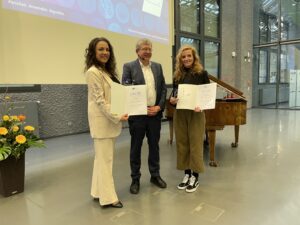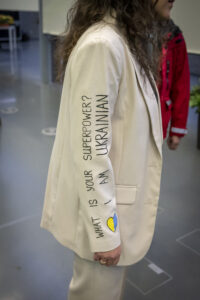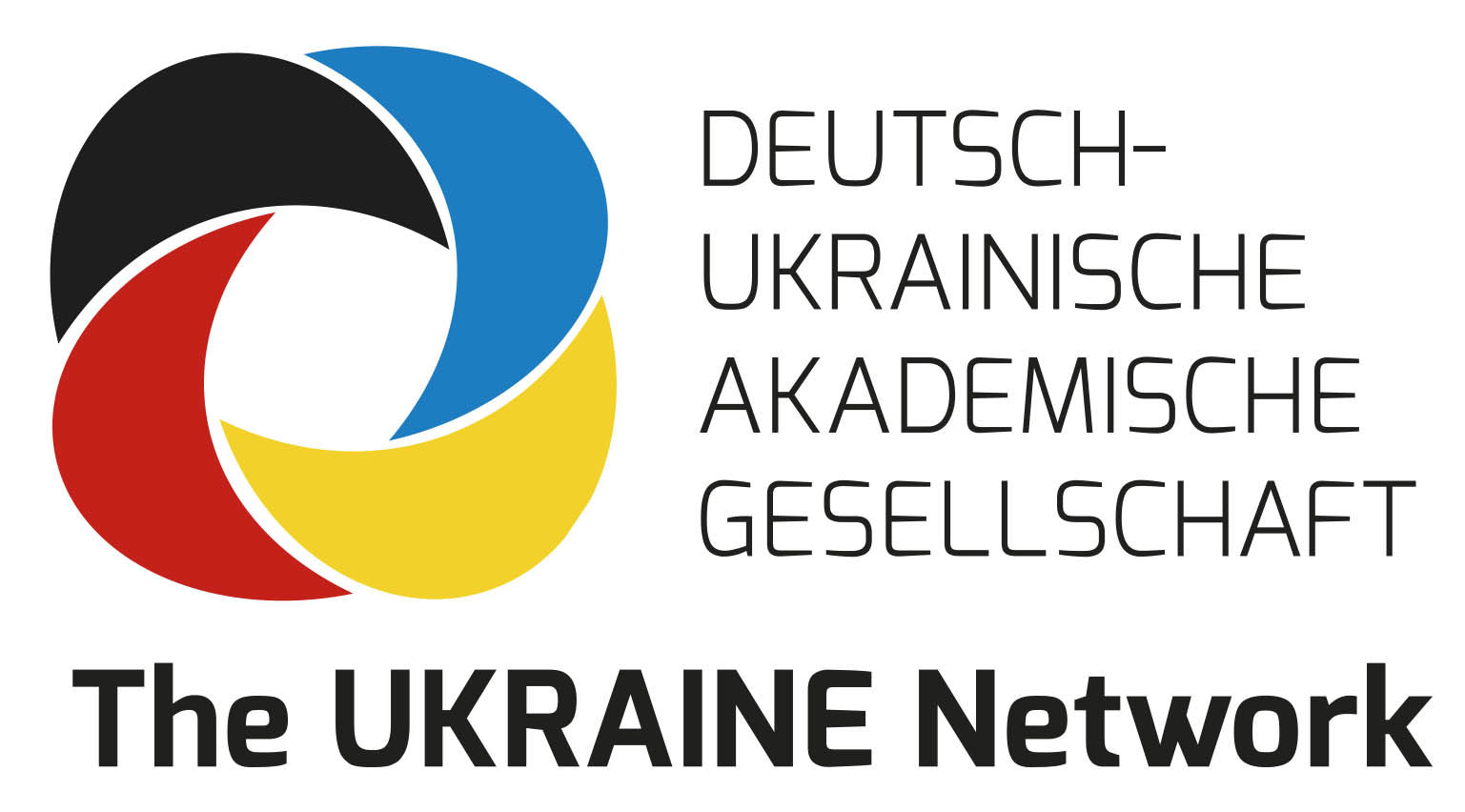“TH Wildau taught me that scientific vocabulary excludes term “impossible”. Science brought us to the moon, it is a driving support for Ukraine during wartime and it will definitely cure cancer”, says Dr Anna Grebinyk

Earlier this year Dr Anna Grebinyk was awarded the 2023 Research Prize in the category “research-oriented achievements” by the Technical University of Applied Sciences in Wildau (TH Wildau), Germany. With the prize, the university honoured her research project “FullDrug – New approaches in cancer therapy with C60 fullerene complexes”. The prize, which was presented during the 12th Wildau Science Week, recognises outstanding achievements by scientists at TH Wildau.
In the FullDrug project, Grebinyk (who also serves as the treasurer of the German-Ukrainian Academic Society) investigated the possibility of using carbon-60 particles, so-called fullerenes, for cancer treatment. Fullerenes are nanoparticles composed of sixty carbon atoms. They have the molecular structure of small football-shaped spheres that are composed

of carbon rings. This gives fullerenes unique physicochemical properties and biological activities. Experimental data have already shown that it should be possible to use fullerenes to target and kill cancer cells. Grebinyk focused her project on the final phase of preclinical studies and proved that the concept works for the novel treatment strategy, called photodynamic chemotherapy. In particular, the extensive cooperation with six Ukrainian partner universities ensured that the scope of the project grew far beyond the original project plan. The number of cancer types that could be targeted by the tested drugs is very large; therefore, the proposed strategy to increase their therapeutic potential with photodynamic chemotherapy with fullerenes seems promising.
